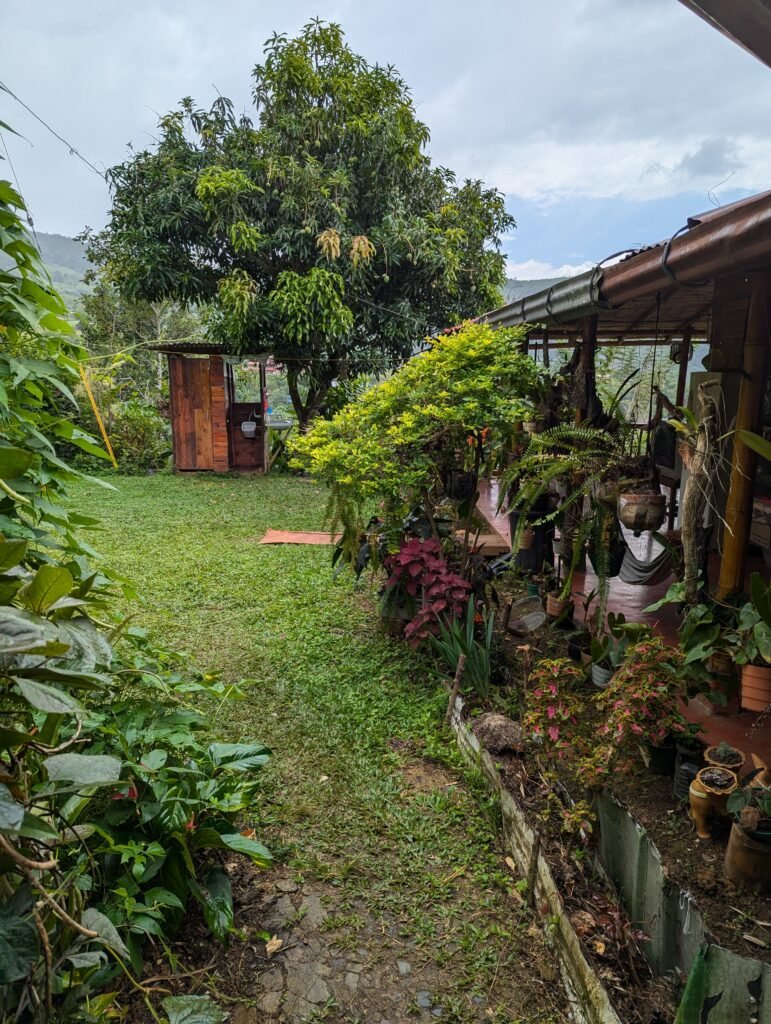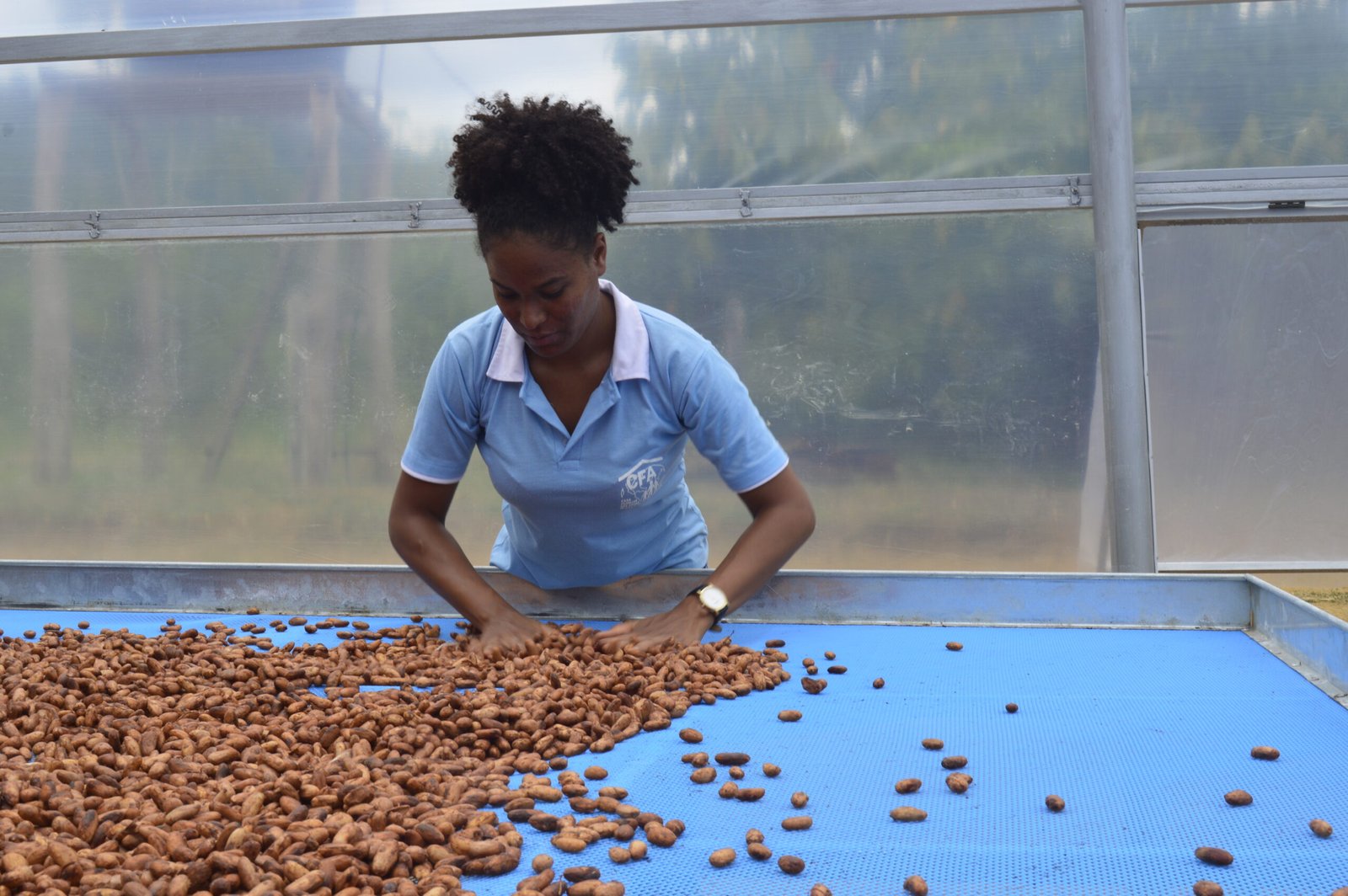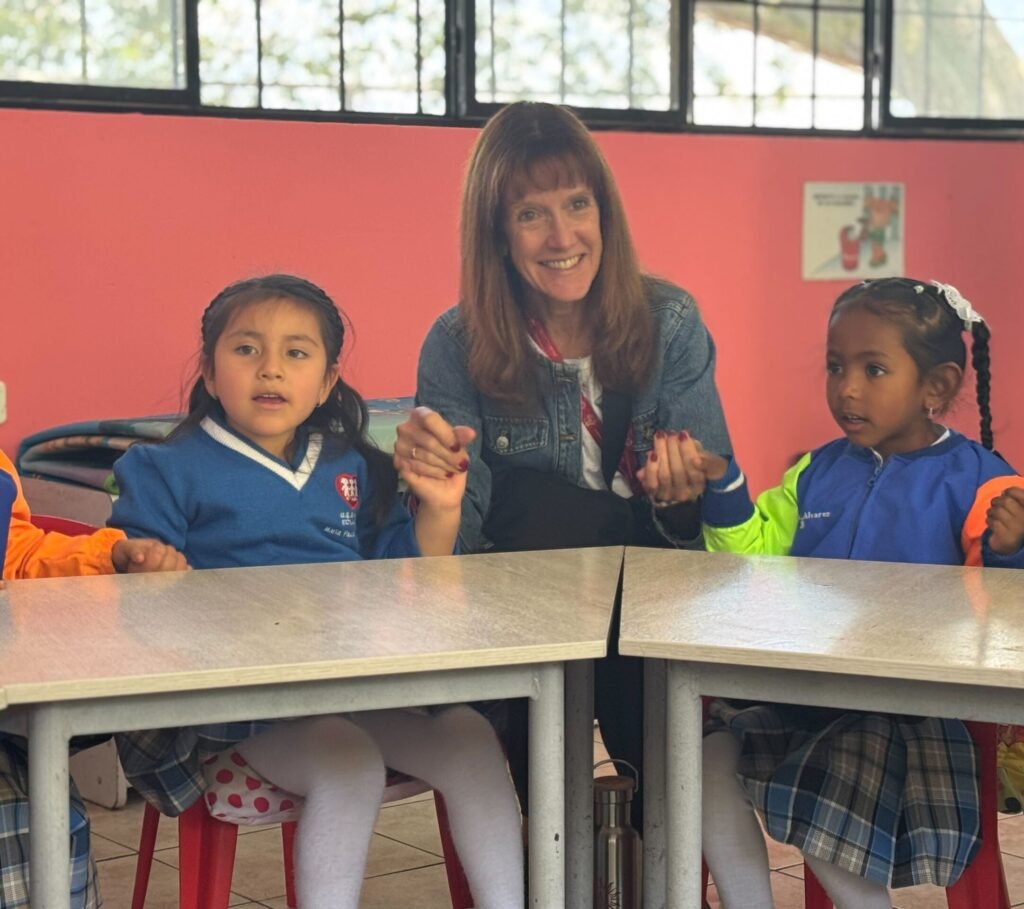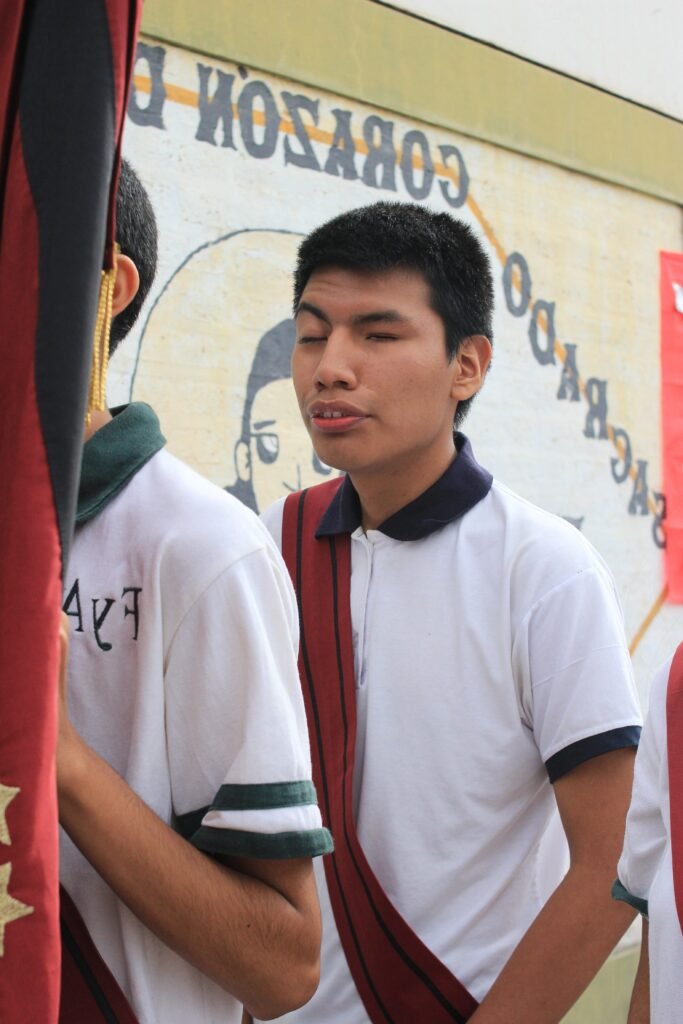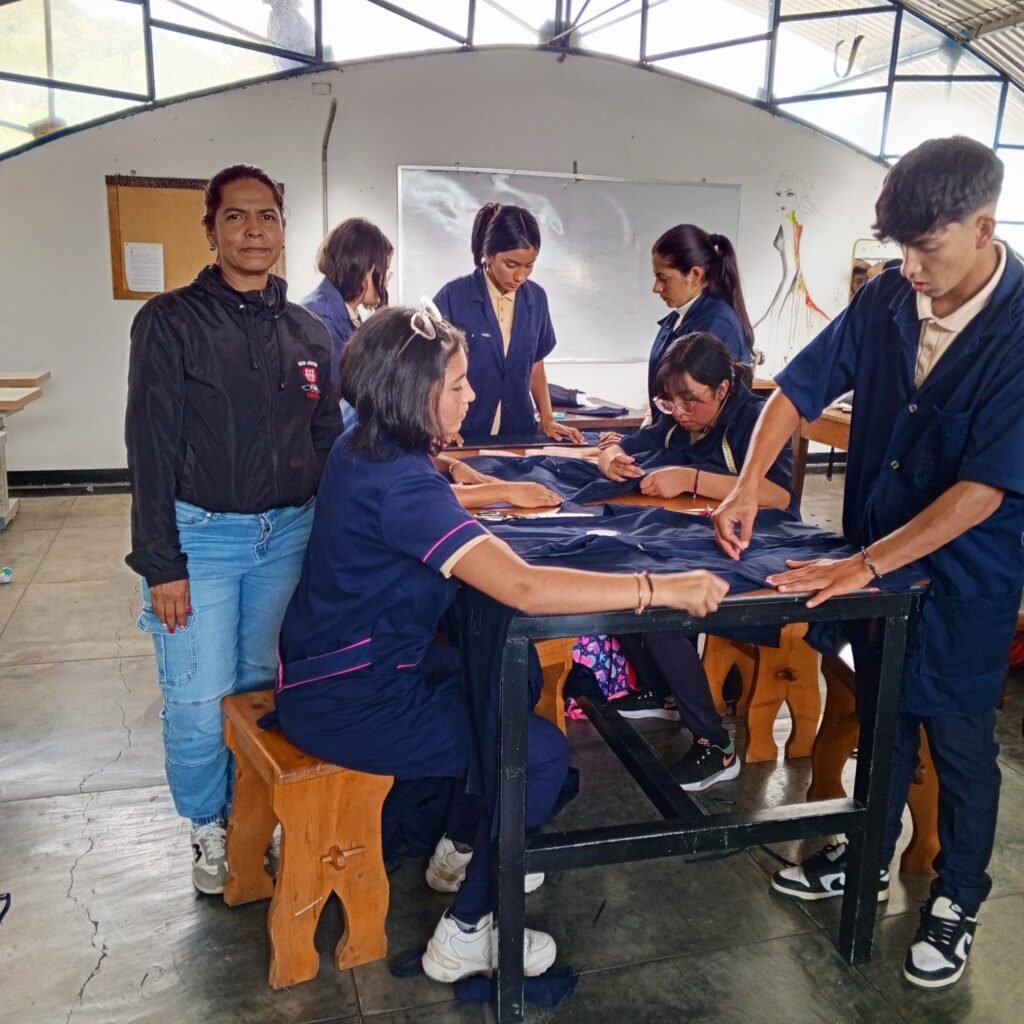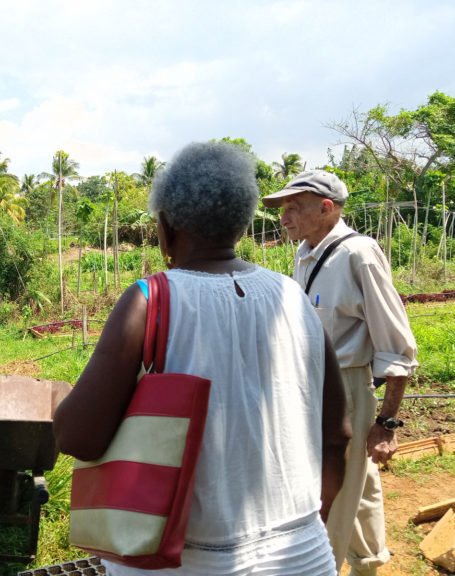In December 2024, I witnessed the impact of the Comparte Network firsthand and gained a deeper appreciation for the importance of sustainable agriculture in rural communities and to meet some of the individuals, families, and communities who are the true protagonists of this network. Now six months later, I still recall the journey we took into ‘cerros’ (mountains) that surround the Cauca valley and the incredible people we met there.
—
During our trip to Colombia, I joined fellow staff members of American Jesuits International (AJI), Nate, Ixchel, and Suzanne, the chair of our board of directors on a site visit to the IMCA Hotel. This social enterprise is operated by the Instituto Mayor Campesino (IMCA) Cooperative and contributes to the economic, social, and environmental dynamics of Valle del Cauca. The hotel was once the residence for the Jesuits’ agricultural programs and rural education school started by Fr. Francisco Javier Mejía, S.J. in 1962. Originally known as the Universidad Campesina – UNCA (Rural Farmers University), the center was a reference for primary education, cooperative education, leadership courses for adults and community engagement for decades, even as the political and social context of Colombia has fluctuated.
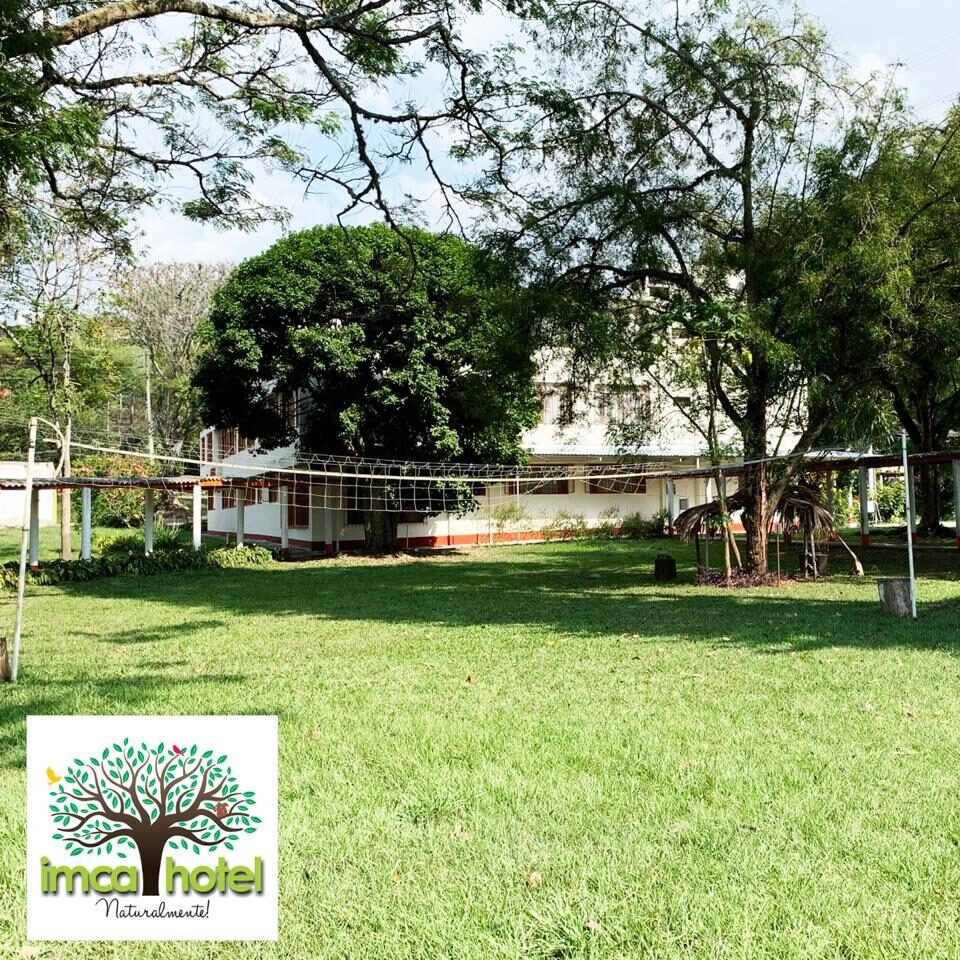
The IMCA is also one of the social centers that make up the Comparte Network—a community of learning and action committed to addressing social exclusion and promoting sustainable agriculture in vulnerable communities across Latin America. By exchanging practical lessons from their local experiences, organizations engaged in community development and grassroots initiatives are helping others build and scale efforts that nurture both their communities and our common home. Despite their differences in geography or focus, each initiative in the network shares a common goal: enabling individuals and communities to live with dignity, sustainability, and a sense of “Buen vivir”—the good life.
The IMCA is a central hub for the Jesuits’ ecological initiatives in the region and gave us a great opportunity to learn more about their programs. The Institute offers both diploma courses and thematic workshops that allow a diverse group of participants to expand their expertise and develop more sustainable initiatives in areas such as agroecology, solidarity economy, citizen participation, and territorial peacebuilding.
At the same time, the IMCA provides important project management resources for different social, environmental, political, economic, and cultural initiatives or projects emerging from the region. These projects are prioritized, formulated, and implemented to generate inclusive and sustainable territorial development, promoting interaction, coordination, and resource pooling among different social and institutional actors, and generating processes of transformation of the adverse realities experienced by rural communities and vulnerable social sectors (e.g., children, youth, or women).
At the start of our visit, Pedro Antonio Ojeda Pinta, Manager of Social Projects at IMCA, gave us an overview of the IMCA’s history, its current projects, and its role within the Comparte Network. He then introduced Disney, a community member who helps organize and accompany rural communities and agricultural initiatives.
Disney brought us to a rural finca (small farm), owned by a family participating in IMCA’s programs. The Campoalegre finca is a family lead agroecological project located in the municipality of Guacarí, in the department of Valle del Cauca, in the township of Santa Rosa de Tapias. Sitting high on the hillside, the finca has an incredible diversity of crops and livestock. From bananas to cocoa and goats to tilapia, the family produces a huge variety of goods which are mostly for self-consumption, with a small portion sold at local markets like Mercún in Cauca.
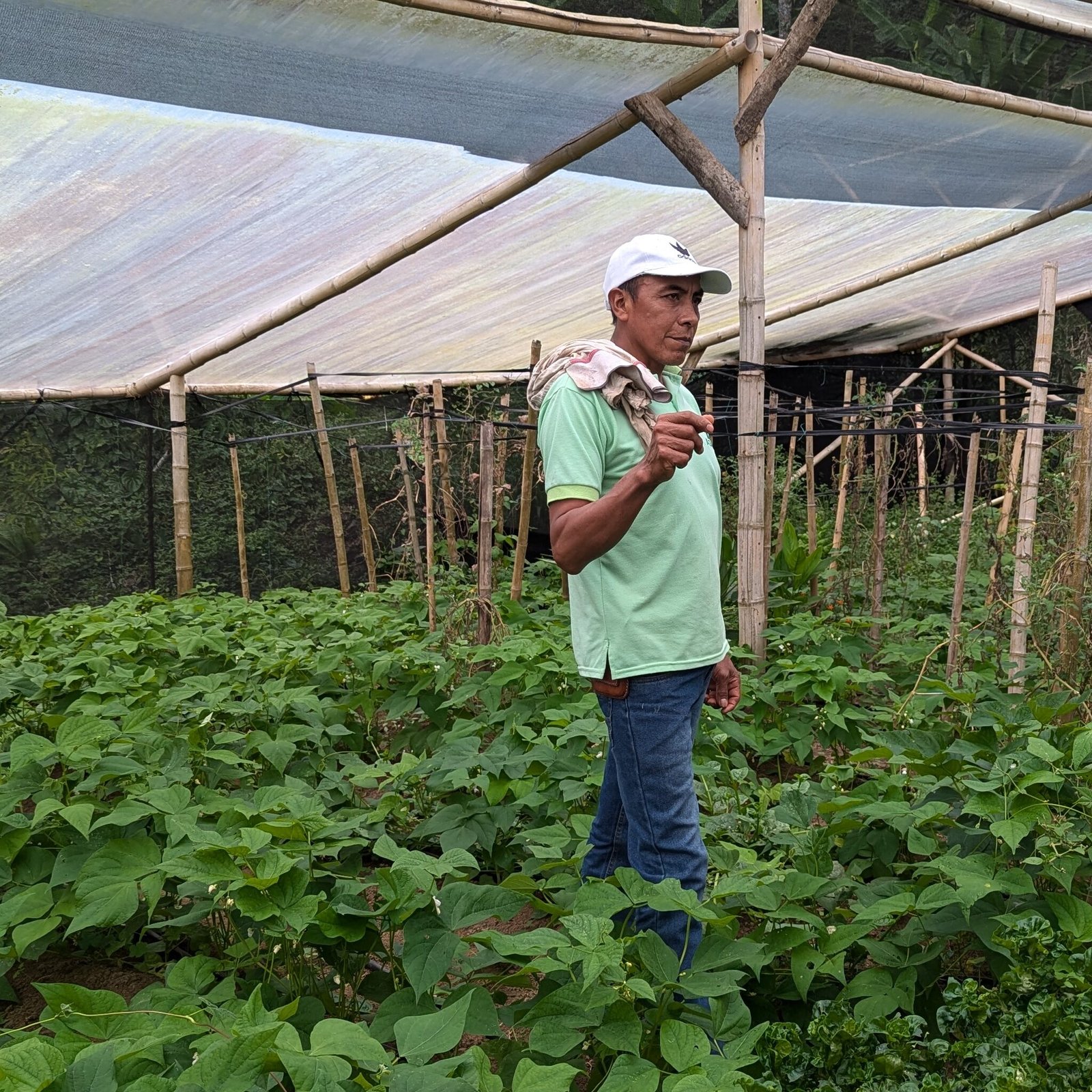
A family effort, the finca was started by Doña Marlene and Don Marino when they moved to the area from northeastern Colombia, closer to the Venezuelan border. They were looking for a quiet, rural area to continue their family’s agricultural heritage away from the violence and cartels that had begun to take over the area their families had called home for decades. As is the case with many internally displaced people, Marlene and Marino followed family and friends to this new area of Colombia and brought with them traditional plants, food, and practices from their native region.
With the help of the community, Marlene and Marino began to build their humble home and plot out their land. They shared how the lumber for their home was recovered from an old building in the community which had collapsed. They later asked friends and neighbors to help build water conservation systems and plant an incredible diversity of trees, plants, and other natural herbs throughout the property. High on a hillside, Marlene and Marino slowly but relentlessly carved a sustainable, ecological livelihood out of the natural environment.
As we toured their finca, Marino explained how the different plants provided mutual support, some offering shade while others fortified the sloping plots of land. The finca uses a forest agriculture methodology which means that plants are cultivated throughout the natural environment rather than in clearcut areas on the hillside. What initially looked like naturally occurring vegetation when we arrived at the finca was actually a carefully planned and tended finca designed to be naturally organic and less impactful on the local environment.
During our visit, we also learned how their community works together to support each other and how the IMCA, and the Comparte Network more broadly, support the work of these small farms. For example, Marlene shared her experience establishing a seed bank with the support of the IMCA. What started as a passion project now contributes to the sustainable agriculture in her community and is a source of income for her family.
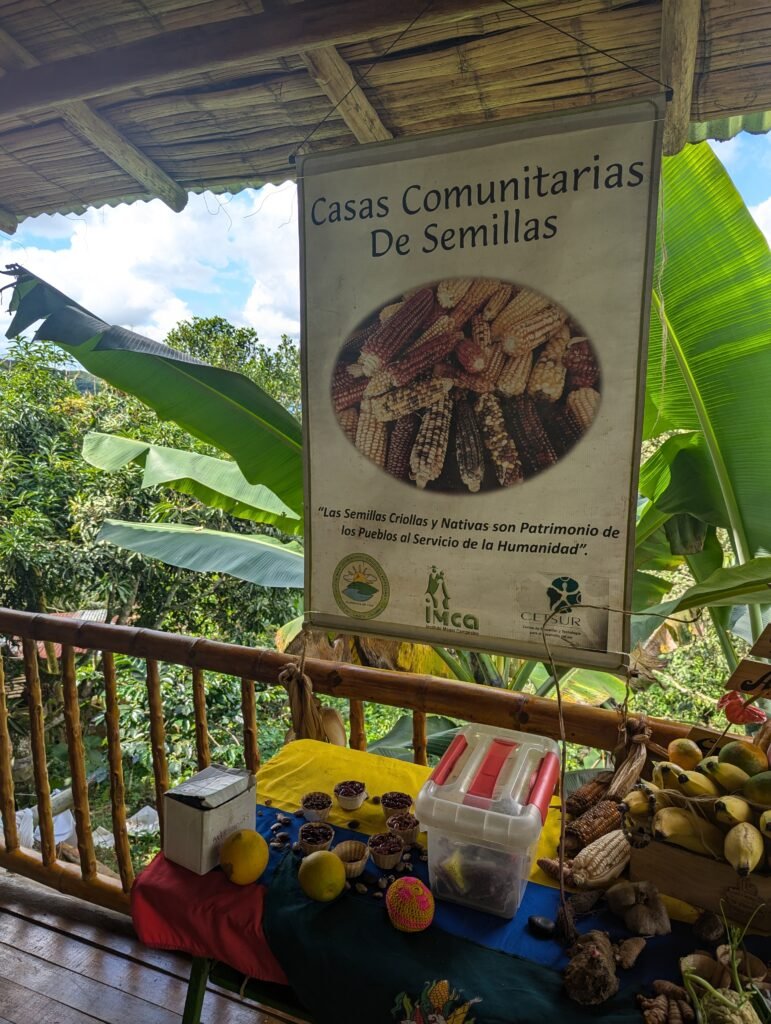
Marlene has learned to identify, save, and package seeds from the plants that the family cultivates on their finca. Working with the IMCA, she has even been invited to share her experience with others in the region. She shared with us that the experience was incredibly empowering for her since she had never imagined that she would return to the classroom, let alone teach others about her experience.
Their son Cristian is also following in his parents’ footsteps. When we visited the finca, Cristian was working on the final stages of a project he was submitting as part of a diploma course at the IMCA. He had learned about sustainable agriculture and was helping his father to evaluate their banana trees, cutting down older trees and replanting new ones in more favorable locations. With support from Disney, his father, and other community members, Cristian was documenting the process to improve future agricultural projects at the finca.
From seed banks to agricultural investigation and learning processes, similar initiatives are carried out by other Comparte Network member organizations throughout Latin America. While Marino, Marlene, and Cristian may not think much of the logo on the poster that hangs on their patio, their efforts are a testament to the true impact of this incredible network.
As we traveled back to the IMCA hotel that afternoon, I remember reflecting on the long journey the family would make each time they participated in a workshop at the institute or brought their goods to market. Now, thousands of miles away in an office in D.C. I can’t help but think how far I needed to travel to truly understand the work that the Comparte Network is doing and the importance of sustainable agriculture in rural communities. I can say I am blessed to have had the opportunity, and I would make the trip again any time. Especially if Marlene was planning to make another batch of her delicious Pipián tamales.
